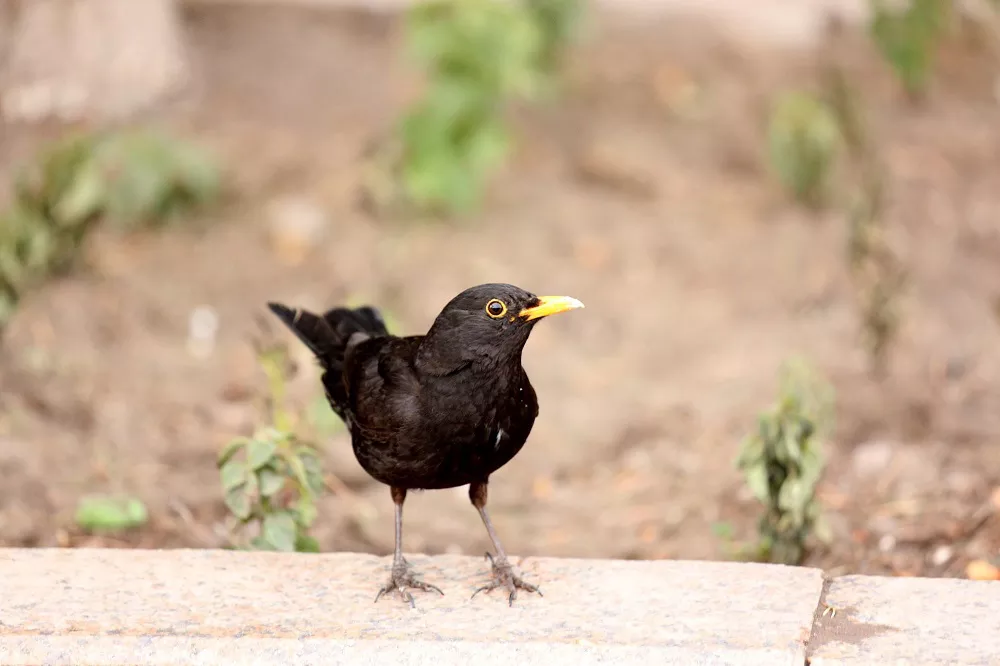The Common Blackbird (Turdus merula) is a remarkable bird species known for its striking black plumage and beautiful song. As an adaptable and opportunistic omnivore, the Common Blackbird has a diverse diet that allows it to thrive in various habitats across Europe, Asia, and North Africa. In this article, we will explore the dietary preferences and feeding behaviors of the Common Blackbird, shedding light on its foraging strategies and ecological role.
General Feeding Habits:
The Common Blackbird displays a versatile feeding behavior, which includes the consumption of both animal matter and plant-based food sources. Its diet may vary depending on the season, habitat availability, and individual preferences.
Animal-Based Food Sources:
Invertebrates: The blackbird is an avid insect hunter and forages for various invertebrates, including earthworms, beetles, caterpillars, spiders, snails, and other small invertebrates found in the soil, leaf litter, and vegetation. It uses its sharp beak to probe the ground and uncover hidden prey.
Small Vertebrates: On rare occasions, particularly during the breeding season, blackbirds may feed on small vertebrates such as lizards, frogs, and small snakes.
Plant-Based Food Sources:
Berries and Fruits: Common Blackbirds are known for their fondness of berries and fruits. They feed on a wide variety of berries, including blackberries, raspberries, elderberries, holly berries, and cherries. Additionally, they consume fruits such as apples, pears, and figs, particularly when ripe and abundant.
Seeds and Grains: While seeds and grains are not a significant part of their diet, blackbirds may consume them opportunistically. This includes seeds found in grasses, weeds, and agricultural fields.
Agricultural Crops: In certain environments, Common Blackbirds can cause damage to crops like grapes, cherries, and strawberries, as they may feed on these fruits during the harvest season.
Seasonal Variations:
The Common Blackbird’s diet can exhibit seasonal variations:
Breeding Season: During the breeding season, blackbirds rely more heavily on animal-based food sources, such as earthworms and insects, to meet the increased energy demands for raising their young.
Autumn and Winter: As autumn arrives and berries become abundant, blackbirds focus more on consuming fruits as a primary food source. This is crucial for building fat reserves to sustain them through the winter months when other food sources may be scarce.
Ecological Importance:
The Common Blackbird plays a significant ecological role as a seed disperser, insect predator, and pollinator. By consuming a variety of fruits, they aid in seed propagation and plant diversity within their habitats. They also contribute to controlling insect populations, playing a part in natural pest control.
Conclusion:
The Common Blackbird’s adaptable and varied diet reflects its ability to exploit available food resources in its environment. From invertebrates to berries, fruits, and occasional seeds, these birds demonstrate versatility in their feeding habits throughout the year. By understanding the dietary preferences and ecological importance of the Common Blackbird, we gain a deeper appreciation for its role in maintaining a balanced ecosystem. This fascinating bird species reminds us of the intricate connections between avian species and the natural world they inhabit.


 Facebook
Facebook  Instagram
Instagram  Youtube
Youtube 